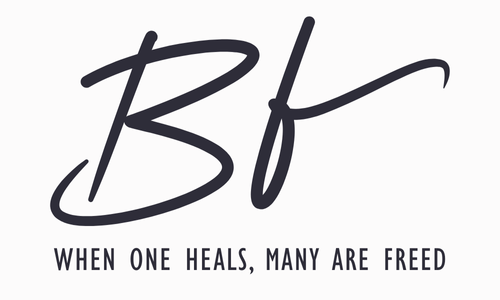Burnout and the Pressure to Have It All Figured Out
Image Credit: Josefa Diaz
I wonder if this situation is similar to yours:
You’re not working 80-hour weeks. You’re not necessarily even in a conventionally high-powered job. But you feel utterly drained, like your energy is leaking out the sides just trying to keep it together. You can’t point to a crisis, but your body feels heavy. You find yourself withdrawing from things you used to enjoy, and even getting out of bed in the morning can feel like an uphill climb or worse, panic-inducing.
This is a version of burnout that isn’t always recognised because it doesn’t necessarily come from doing too much. Sometimes it comes from trying too hard to be someone you're not even sure you want to be.
Image Credit: Oliver Roos
What Burnout Really Means
The International Classification of Diseases (ICD-11) describes “Burn-out is a syndrome conceptualized as resulting from chronic workplace stress that has not been successfully managed. It is characterized by three dimensions:
· feelings of energy depletion or exhaustion;
· increased mental distance from one’s job, or feelings of negativism or cynicism related to one's job; and
· reduced professional efficacy. ”
While this definition centres on the workplace, burnout can also grow from internal stress, especially the kind created by unrelenting self-expectation, in other words, putting so much pressure on yourself to live up to a version of success or identity that might not actually fit who you are. You might be meeting your deadlines or turning up for work, but inside you feel frayed, numb, or like you're moving through treacle. This is especially true for people who aren't just trying to meet targets, but also trying to prove their worth through achievement.
Image Credit: Christian Erfurt
How Can You Know What You Want Before You Know Who You Are?
Many people experience burnout not because they’re doing too much, but because they’ve been trying to answer "What do I want to be?" before they've had the space to explore "Who am I?". These findings align with psychoanalyst Erik Erikson’s theory that failure to form a stable identity can destabilise our emotional resilience.
In early adulthood, this pressure can be especially intense. Developmentally, you're still discovering what you value, what feels meaningful, and what kind of life suits your temperament and nervous system. But society often demands certainty before that process has finished. You're asked to pick a path, commit to a career, or settle into a role at the exact time you may still be forming a sense of identity.
Add in perfectionism, comparison culture, and the carefully curated lives you see on social media, and you can easily end up stuck in a cycle of self-scrutinisation and self-doubt. You’re trying to find a life that resonates, that journey of authenticity, which is very difficult in itself, but you're ALSO trying to meet expectations, real or imagined, from family, culture, or your younger self. No wonder you’re suffering from burnout.
Image Credit: Ivana Cajina
Who Is Most Vulnerable to This Kind of Burnout?
Burnout from identity–expectation mismatch is more likely if:
· You have a history of perfectionism or people-pleasing
· You’ve been rewarded more for performance than for presence
· You didn't grow up with emotionally attuned support
· You feel anxious when you're not achieving or progressing
· You feel pressure to pick the “right” path quickly or definitively
It doesn’t mean anything is wrong with you and it doesn’t mean the list is black-and-white, in a sense that, if you didn’t receive it, it doesn’t mean that that is the sole reason for your distress because life is much more nuanced than that. What it can signal is that your system has been in overdrive for too long without enough space to rest, reflect, or simply to be.
Burnout as Misalignment, Not Failure
Burnout is often your body’s way of saying that this isn’t quite working anymore. It’s not always a sign that you need to push harder or fix yourself. Sometimes it’s a signal that something in your life is out of sync.
It could be the job you chose based on someone else's dreams. Or the pressure to define your whole future by the time you're 25. Or the belief that if you slow down, you'll fall behind. Whatever the source, burnout can be reframed not as a breakdown, but as an invitation to listen inward.
Image Credit: Chanhee Lee
How Expectations Have Changed Across Generations
It’s easy to hear that younger people are “softer” or “more sensitive” nowadays. That they're burnt out because they can’t handle what previous generations just accepted. But when you look closer, it becomes clear that the pressure points have changed, not necessarily lessened.
For much of the post-WW2 era, through the 60s, 80s, and even into the early 2000s, life paths were more linear and more rigid. You left school, got a job, settled down, maybe got married young, and stayed in the same career for decades. You didn't necessarily have to reflect on whether your work aligned with your identity or your values. It was about survival, stability, or status. Questioning that would have seemed indulgent or even absurd.
Now, the script is changing. We're told to follow our passion (not just what we like but what we are willing to suffer for), build a life that reflects who we really are, and optimise every aspect of our careers, habits, and even our personalities. That may be more freeing, but it also means we carry the burden of choice, responsibility, and self-definition at an age where most of us are still figuring out who we are.
There are more lenses now through which to examine our stress and distress. And while that can be illuminating, it can also be overwhelming. As podcaster and commentator Chris Williamson has reflected that when you have too many options and too many ways to analyse yourself, the result can be paralysis rather than clarity.
Burnout today may not stem from physical labour or long factory hours, it often grows from internal pressure, self-comparison, and identity confusion. It's not that the modern generation is necessarily weaker. It's that the terrain is different.
Image Credit: Roberto Nickson
Gentle Ways to Support Yourself Alongside the Deeper Work
Burnout isn't something you can fix overnight, but there are small, compassionate steps that can help ease the weight while you begin to understand it.
· Try a two-hour window once a week or split up into 30-minute blocks that are entirely obligation-free. No productivity. No self-improvement. Just space to be.
· Go for a 10-minute walk without your phone. Let your thoughts wander without needing to capture or optimise them.
· Ask yourself: If I didn’t have to prove anything today, how would I spend my time?
These aren't concrete solutions. They're invitations to shift the way you relate to yourself. And sometimes, those small acts of self-allowance can start to open the bigger questions in a better, more sustainable way than having existential crises come down on you like a tonne of bricks.
Image Credit: Nazym Jumadilova
How Therapy Can Help When You're Not Sure Who You Are Yet
You don’t need to be certain to deserve rest. And you don’t need to be perfect to be whole.
If burnout feels less like tiredness and more like disconnection, therapy can help you begin to untangle what’s yours, what you’ve outgrown, and what might be possible if you were allowed to just be you.
If you have a story that resonates with what you’ve just read, where burnout feels like the result of a clash between your identity and your career, I’d genuinely love to hear it. You’re warmly invited to email me and share your experience, if that feels right for you.
Alternatively, if you’re ready to explore this more deeply together, you can book a free discovery call. We can begin working out how to gently navigate your way out of burnout, and into something that feels more like belonging, alignment, and wholeness.
Burnout is not only working yourself into the ground, it’s often fuelled by shame, perfectionism, and the pressure to prove your worth. If this feels familiar, you may resonate with:
References
Charvin, L., Akinyemi, A., Mariette, J.Y., Mizzi, C., Cardoso, T., Grufeille, C., Brun, C., & Bagnis, C.I. (2025). MBCARE, a mindfulness- and self-compassion-based intervention to decrease burnout and promote self-compassion in health care providers. BMC Psychology. 13(1), p. 523.
Cheek, N.N., Schwartz, B., & Shafir, E. (2023). Choice Set Size Shapes Self-Expression. Personality and Social Psychology Bulletin. 49(2), pp. 267-281.
Cote, J. (2018). The Enduring Usefulness of Erikson’s Concept of the Identity Crisis in the 21st Century: An Analysis of Student Mental Health Concerns. Identity. 18, pp. 1-13.
Danielsen, H.E., Finserås, T.R., Andersen, A.I.O., Hjetland, G.J., Woodfin, V., & Skogen, J.C. (2024). Mirror, mirror on my screen: Focus on self-presentation on social media is associated with perfectionism and disordered eating among adolescents. Results from the “LifeOnSoMe”-study. BMC Public Health. 24(2466).
De Maeyer, C., & Schoenmakers, B. (2019). Exploring intergenerational differences in burnout and how they relate to work engagement, norms, and values: a mixed-methods study. British Journal of General Practice.3(2).
Foster, B. (2025). Therapy for anxiety: Beyond labels. Ben Foster Therapy. Available at: https://www.benfostertherapy.com/blogs/therapy-for-anxiety-beyond-labels. [Accessed: 13 September 2025].
Martin, G., & Roberts, S. (2021). Exploring legacies of the baby boomers in the twenty-first century. The Sociological Review. 69(4), pp. 727-742.
Nova Associates. (2023). Why are Millennials & Gen Z more prone to burnout than Baby Boomers? Available at: https://novaassociates.co.uk/why-are-millennials-gen-z-more-prone-to-burnout-than-baby-boomers/. [Accessed: 13 September 2025].
Schwartz, S.J., Beyers, W., Luyckx, K., Soenens, B., Zamboanga, B.L., Forthun, L.F., Hardy, S.A., Vazsonyi, A.T., Ham, L.S., Kim, S.Y., Whitbourne, S.K., & Waterman, A.S. (2011). Examining the light and dark sides of emerging adults' identity: a study of identity status differences in positive and negative psychosocial functioning. Journal of Youth and Adolescence. 40(7), pp. 839-859.
Williamson, C. (2024) How Too Much Self-Help Can Hurt You. YouTube. [Online]. Available at: https://www.youtube.com/watch?v=Px1LdHmiOas. [Accessed: 13 September 2025].
World Health Organization (2019) Burn-out an occupational phenomenon: International Classification of Diseases. Available at: https://www.who.int/news/item/28-05-2019-burn-out-an-occupational-phenomenon-international-classification-of-diseases. [Accessed: 13 September 2025].








